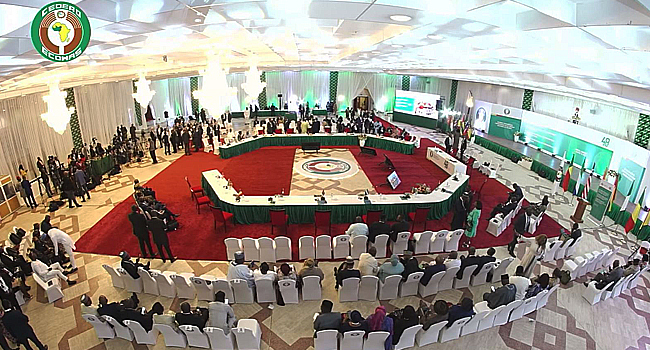Members of the Economic Community of West African States (ECOWAS) have approved the design for the $15 billion Lagos-Abidjan Corridor Highway Development Project during a meeting held in Lagos State.
The group also announced plans to initiate the procurement process for the project at its upcoming meeting.
Chaired by Nigeria’s Minister of Works, Dave Umahi, the meeting focused on the $15 billion project, which is expected to enhance regional economic integration. Currently in its study phase, the project involves ongoing detailed research, planning, and design.
Discussing the history and progress of the Lagos-Abidjan Highway Development Project, Umahi highlighted that it was first initiated in 2013 and has received significant funding support from the African Development Bank.
He emphasized that the current meeting aimed to finalise and approve the project design, as it nears a critical stage for implementation.
Umahi further noted that heads of ECOWAS member states have met to agree on the project, with various stages of development—including design, environmental impact assessment, and funding mechanisms—progressing over the past 11 years.
Ghana’s Minister of Roads and Highways, Francis Boakye, stressed the vital role infrastructure, particularly road networks, plays in driving socio-economic development.
He pointed out how highways can boost trade, tourism, and economic activities, using the United States’ economic boom as an example of this connection.
Boakye underscored the importance of the Lagos-Abidjan highway project in fostering economic integration across West Africa.
The Lagos-Abidjan Corridor Highway, set to commence in 2025, is part of the larger Dakar-Lagos Corridor and one of ECOWAS’ flagship priority development programs.
Spanning approximately 1,068 kilometers, the project will cover five ECOWAS member countries—Côte d’Ivoire, Ghana, Togo, Benin Republic, and Nigeria—and pass through eight border towns, beginning at Eric Moore and ending in Abidjan.
The project is being financed by the African Development Bank.



